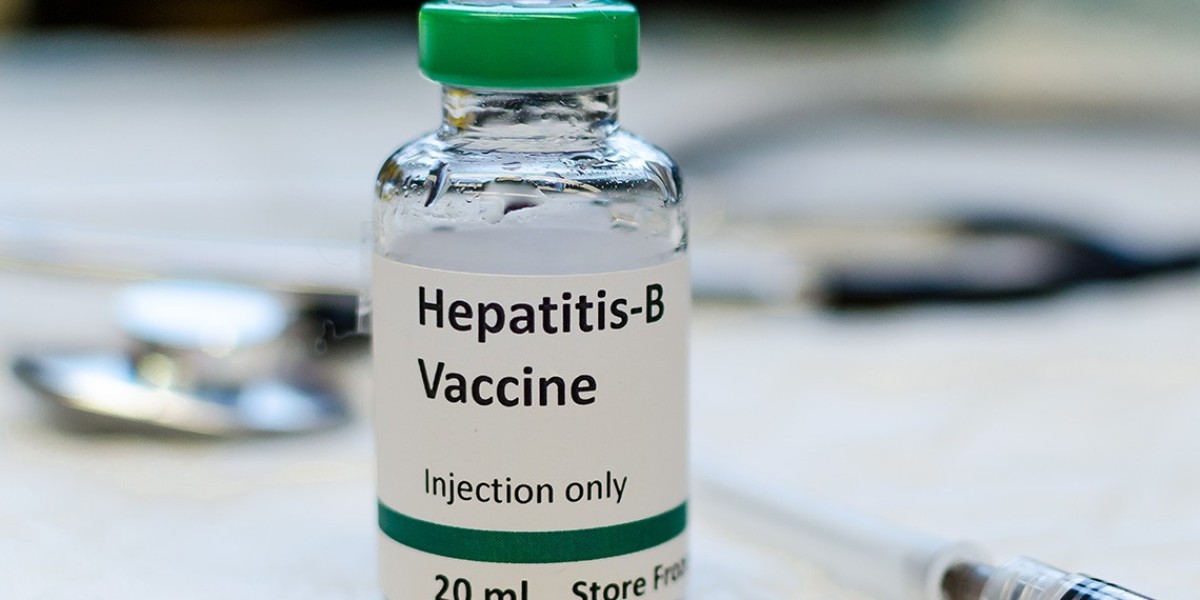What Are the Current Trends in the Hepatitis B Vaccine Market for 2024?
The hepatitis B vaccine market is experiencing significant changes in 2024, driven by increasing awareness of viral hepatitis and advancements in vaccine technology. With an estimated 257 million people living with chronic hepatitis B globally, the demand for effective vaccination is growing. Recent trends indicate a shift towards combination vaccines that offer protection against multiple diseases, making immunization more efficient and accessible. Additionally, rising healthcare expenditures and government initiatives promoting vaccination are contributing to market expansion.
Key players in the market, such as GSK, Merck, and Dynavax, are investing heavily in research and development to enhance vaccine efficacy and delivery methods. The integration of digital health technologies, such as telemedicine and electronic health records, is also facilitating better patient management and vaccination tracking.
What Is the Average Cost of the Hepatitis B Vaccine for Adults?
The average cost of the hepatitis B vaccine for adults can vary widely based on location, healthcare provider, and insurance coverage. In the United States, the cost typically ranges from $40 to $100 per dose, with a complete vaccination series consisting of three doses. Many insurance plans cover the vaccine, particularly for high-risk populations, such as healthcare workers and individuals with chronic liver disease.
Financial assistance programs, such as those offered by the CDC and various non-profit organizations, are available to help uninsured or underinsured individuals access the vaccine. As awareness about the importance of vaccination increases, efforts to make the hepatitis B vaccine more affordable are likely to grow.
How Effective Is the Hepatitis B Vaccine in Preventing Infection?
The hepatitis B vaccine is highly effective, with a success rate of over 90% in healthy individuals who receive the complete vaccination series. This efficacy is crucial in preventing the spread of hepatitis B, which can lead to serious liver diseases, including cirrhosis and liver cancer.
Most individuals develop immunity within 1 to 2 months after completing the vaccination series. However, some populations, such as older adults and those with compromised immune systems, may have a lower response rate and may require additional booster doses. Ongoing studies are also exploring the potential for new adjuvants and formulations to further enhance vaccine effectiveness.
What Are the Vaccination Guidelines for Infants Regarding Hepatitis B?
Vaccination guidelines for infants recommend administering the hepatitis B vaccine as part of routine immunization. The first dose should be given within 24 hours of birth, followed by the second dose at 1 to 2 months and the third dose at 6 to 18 months of age.
These guidelines are designed to provide early protection against hepatitis B, especially in high-risk populations, such as infants born to hepatitis B-positive mothers. Healthcare providers emphasize the importance of completing the vaccination series to ensure long-term immunity.
What Are the Top New Technologies and Innovations in the Hepatitis B Vaccine Market?
Several innovations are shaping the future of the hepatitis B vaccine market. Notable advancements include:
Next-Generation Vaccines: Companies like Dynavax are developing new adjuvanted vaccines that enhance immune response, potentially allowing for fewer doses.
mRNA Technology: Following the success of mRNA vaccines in COVID-19, research is being conducted into mRNA-based hepatitis B vaccines, which may offer quicker production times and improved efficacy.
Combination Vaccines: Innovations in combination vaccines allow for simultaneous protection against hepatitis B and other diseases, improving vaccination rates and compliance.
Digital Health Solutions: Enhanced data analytics and mobile applications are being used to track vaccination rates, manage patient records, and promote vaccine awareness, ultimately leading to better health outcomes.
By staying informed about these trends and innovations, stakeholders in the hepatitis B vaccine market can better navigate the evolving landscape and contribute to improved public health outcomes.
For more info MarketResearchfuture
Related report



